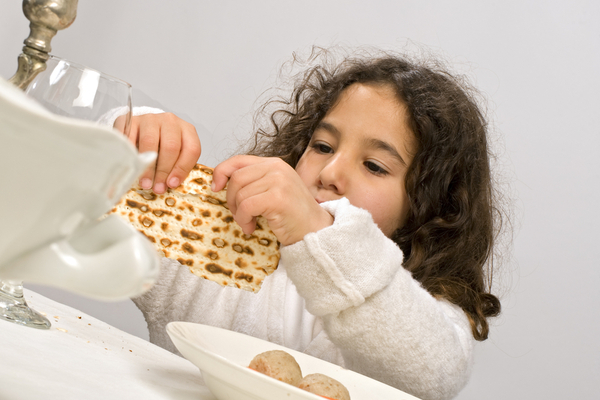Don’t let feelings of inadequacy hold you back on Seder night.
By Rabbi Ari Enkin, Rabbinic Director, United with Israel
An old joke about Jewish denominations asks, “What do Reform and Orthodox Judaism have in common?”
The answer: The congregants behave as the rabbi does – in a Reform synagogue the community members drive home from Shabbat services as does the rabbi, while in an Orthodox synagogue everyone walks home.
But as with many jokes, this one is not entirely accurate.
Look beyond the walk or drive home on Shabbat and one can quickly see many areas in which a congregant at an Orthodox synagogue may say, “I do this, but the rabbi wouldn’t.”
We can even imagine a rabbi walking over to a group of congregants discussing a less than modest movie, or gossiping about someone, and when the rabbi asks what they’re talking about the congregants respond, “Don’t worry Rabbi, it’s not for you.”
In turn, the rabbi himself may harbor feelings of not living up to his spiritual potential, knowing better than anyone how much more time he could be spending helping his family or community members, studying Torah or in other worthwhile endeavors.
Such feelings of inadequacy, while potentially assisting a person in lifting themselves up to a higher spiritual standard, often have the actual effect of holding a person back.
This can have a particularly harmful effect at the Passover Seder, the night when we have tremendous potential to reconnect to our Creator as we personalize the story of His direct involvement in our Exodus to freedom – an entire evening devoted to what He did for our great, great … grandparents, as we say in the Haggadah:
“I took your father Avraham from beyond the river and led him through all the land of Canaan. I multiplied his offspring … G-d brought us out of Egypt with a might hand and with an outstretched arm, with great awe, with signs and wonders … not through an angel … not through a messenger, but the Holy One, Blessed is He, in His glory, Himself.”
So how can we be sure not to miss this opportunity to improve our connection to our Maker?
Our sages tell us the answer in the order they chose for the Seder. The Haggadah begins with Kaddesh (sanctification):
“Blessed are you, G-d, Who sanctifies the people of Israel (Mikadesh Yisrael)”
Only then do we move onto Urchatz (washing), the cleansing of the hands.
The message is that if you’re thinking, “The Seder is not the place for me, I’m not on such a high level right now, (maybe I just yelled at my kids for no reason or did something else of which I’m not proud), I need to clean up my act first,” don’t think that way! You’re already Holy – we just said it – G-d is sanctifying you right as the Seder begins!
How holy is every Jew?
The Chabad rebbe once sent students to visit Jews living on their own far away from any Jewish community.
When one such Jew expressed to the students his feeling that he was barely Jewish, they responded, “Every Jew is like a Torah scroll – it’s just that sometimes the letters wear off and need to be fixed.” Upon their return, the students proudly told the story to the rebbe, only to be corrected.
“Not like a Torah scroll,” the rebbe said. “Jews are like the tablets of the Ten Commandments – all the letters are always there, it’s only necessary to occasionally brush away the dust on top to see them.”
Send Passover Packages to Needy Israeli Soldiers - Bring Them Joy!
We are honored to thank the young men and women of the IDF who risk their lives every day to protect the citizens of Israel. Since October 7th, soldiers have been on the battlefield for months - many are hoping to come home for Passover.
Join us in sending Passover food packages (and personal notes) to Israeli soldiers and their families.
Many soldiers spend the Passover holiday with needy families back home. The soldiers greatly appreciate your love and concern. Bring them Passover joy!
CLICK HERE TO SEND YOUR PACKAGE AND NOTE TO ISRAELI SOLDIERS!




